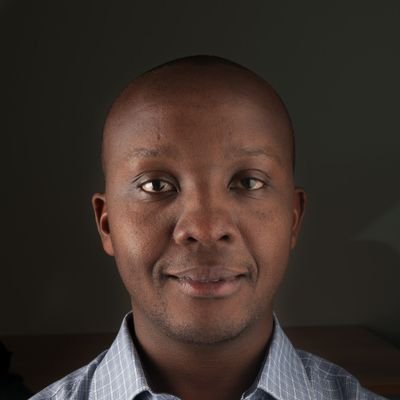
NAIROBI, Kenya — Distraught Kenyan schoolgirls huddled against an alleyway wall, trapped between stone-throwing protesters and police wielding clubs and firing tear gas in an outbreak of violence following Kenya’s disputed election that left national divisions more entrenched.
The girls scrambled to safety in a scene that captured the anguish of a flawed democracy facing protracted pressures unless Kenya’s rival camps can somehow accommodate. The question of how the democratic institutions and relatively open society of this leading East African nation will respond is a bellwether for the continent, where democracy evolves in some places and authoritarianism takes root in others.
“This is not just about Kenya,” said Murithi Mutiga, a Nairobi-based senior analyst for the International Crisis Group. “It’s about the idea of moving toward greater and greater political competition and freedom and against those that say, ‘Let’s privilege economic development and forget political liberalism for now.”’
Kenya is in a lull after a bruising election cycle in which an Aug. 8 vote was nullified by the Supreme Court because of flaws, and an Oct. 26 repeat vote was boycotted by opposition leader Raila Odinga. President Uhuru Kenyatta was declared the winner both times. While most of the country of 45 million was calm, some areas were hit by ethnic tensions, violent protests, sporadic arson and looting and deadly police gunfire during clashes. Police put the death toll at 19; human rights groups say it is more than 70.
“We are tired of suffering in Kenya,” a woman nicknamed Mama Wetu (“Our Mother” in Swahili) said after the clash Monday that ensnared the schoolgirls in Kawangware, a Nairobi slum of shacks and dirt paths. At one point, protesters positioned themselves behind some of the girls, using them as a shield, witnesses said.
Such a scene gives the impression that Kenya is turning on itself, undermining its status as a regional economic hub, a popular tourist destination and an oasis of stability in the conflict-prone Horn of Africa region. Yet, despite the ethnic allegiances and patronage systems that handcuff Kenyan democracy, the country has avoided a repeat of the ethnic-fueled violence after the 2007 election that killed more than 1,000 people.
That is partly thanks to a 2010 constitution whose human rights provisions are among the most progressive in the world, instilling some faith among Kenyans that institutions could peacefully resolve grievances. The Supreme Court, the constitution’s guardian, scrapped the August presidential election after a petition from Odinga, and is likely to again consider complaints about alleged irregularities in last week’s election.
Yet the Oct. 24 shooting of the police driver of a Supreme Court judge, and the failure of the court to muster a quorum the next day to consider a petition to postpone the Oct. 26 election, suggest possible efforts to intimidate the judiciary so recently seen as willing to assert its independence from political pressure.
The nullification of Kenya’s August vote was the first time a court in Africa had overturned a presidential election. The effects are showing up elsewhere on the continent. On Wednesday, Liberia’s Supreme Court ordered a temporary halt to preparations for a runoff presidential election next week as it awaits a hearing on alleged voting irregularities.
The possibility that Kenya’s Supreme Court could nullify the second presidential election this year and order a third vote threatens a “Kafkaesque situation where we have elections for years and years,” said Martin Kimani, a presidential envoy and head of a government task force on counter-terrorism.
“We are testing our institutions” and learning about their strengths and weaknesses, Kimani said.
One commentator wrote in The Standard, a Kenyan newspaper, that the constitution does not “cushion us against the tyranny” of large ethnic groups that form alliances, lord it over smaller groups and share the spoils of power with friends, family and other supporters.
“In Kenya, it is a case of winner-takes-it-all,” wrote Mohamed Guleid, a former county deputy governor in the opposition. He said the situation “can neither be resolved by an election nor by the courts, but by leaders who go beyond political affiliations to form an inclusive government.”
For now, neither side is reaching out to the other.
The 56-year-old president, who by law cannot run for a third term, has denounced the “politics of darkness” in a slap at Odinga. The 72-year-old opposition leader has promised peaceful protests and wants a new election. Kenyatta, an ethnic Kikuyu, and Odinga, a Luo, also faced off in a disputed 2013 election. Their fathers were political allies and then rivals after Kenya’s independence from Britain in 1963.
“There’s very little ideological daylight between them,” said Mutiga, the International Crisis Group analyst. Once they exit the political scene, he said, Kenya’s tensions might “dial down a bit.”